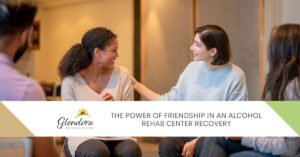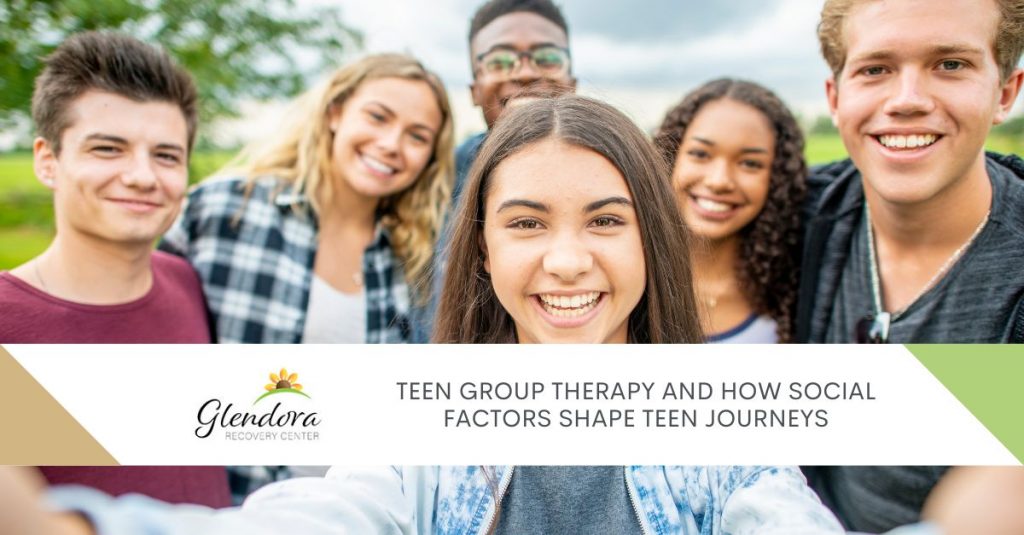Every teen is on a unique adventure, much like a hiker traveling an extensive network of paths. Invisible threads or social variables, if you will—guide, influence, and occasionally hinder their journey. These threads, sometimes unseen, weave through the fabric of their lives, molding their experiences, decisions, and, eventually, their destinies. In today’s article, we’ll talk about the influence of these “threads” as well as how quality teen group therapy can have a positive impact on teens’ mental health.
Understanding Social Determinants
You can think of social determinants as the circumstances under which humans are born, grow, live, work, and age. For teenagers, these elements are like invisible forces nudging their development along numerous courses. These include anything from family and cultural traditions to societal norms and policies. Let’s dive in and see how these determinants play a pivotal role in adolescent growth and development.
As we dive deeper into the domain of social determinants, it is critical to realize the multidimensional nature of these influences. Each factor, from socioeconomic status to cultural norms, intimately intertwines, forming a complicated web that impacts teenage behavior and health. Understanding these variables is not just an intellectual exercise; it is a critical step in designing comprehensive solutions that address the core causes of challenges that youth face today.
The Family Factor
Consider the family as the first social network with which a teen interacts. It is here that they learn their first lessons in love, trust, and conflict. Family relationships and expectations may either boost or undermine a teen’s self-esteem. The community’s effect on teenagers begins at the family dinner table when values are passed down and boundaries are established. It’s a strong environment that may impact a teen’s worldview and sense of belonging.
Navigating School and Community
Moving beyond the family, let’s consider the school and the wider community. These are the places where teenagers learn to socialize, face problems, and carve their identities. Schools are about more than simply academics; they are about developing connections, experiencing varied ideas, and learning to negotiate complicated social systems.
Similarly, community resources, or a lack thereof, may have a substantial impact on a teen’s well-being. Communities that are safe and supportive build resilience, but those that are challenging might create obstacles that are difficult to overcome.
Peer Influence
Peers are one of the most significant forces in adolescence. Friends and peer groups serve as a sounding board for ideas, a mirror reflecting one’s own image, and, at times, a furnace for strong emotional experiences. Peer influence and growth may be a double-edged sword. Positive peer pressure may lead to good habits and healthy coping mechanisms, whilst negative peer pressure can lead to risky behaviors and stress. Understanding this relationship is critical for assisting teenagers through these trying times.
The power of peer groups goes beyond direct social circles into the digital arena. In today’s linked society, social media and online communities play a key influence in molding teenagers’ perspectives and relationships.
This digital component adds to the already complicated fabric of teenage social life. Parents, educators, and counselors must grasp the intricacies of these online interactions and the influence they have on teen development. This insight allows the development of more effective ways to guide youth as they navigate their actual and virtual social environments.
The Importance of Group Therapy
This is where teen group therapy shines as a light of hope. Group therapy at locations like Glendora Recovery Center provides a controlled yet caring setting in which teenagers may explore their social world more efficiently. It’s a place where people may share their experiences, learn from others, and build coping techniques.
In these sessions, we’re not just addressing issues; we’re also building their social skills, empathy, and resilience.
Teen group therapy isn’t the only instrument in the toolbox. At Glendora, we recognize that each teen’s path is unique. That is why we provide a complete variety of services that are personalized to the client. We’re here to help you every step of the way, from partial hospitalization programs for more acute needs to outpatient programs for individuals who are ready to take the next step on their own. Our Juvenile Offender Intervention Network is another example of our dedication to meeting the unique needs of juveniles in a variety of situations.
Weaving Positive Paths For a Strong Future
In the broad tapestry of adolescence, each thread – whether it’s family, community, classmates, or therapy – intertwines to build the wider image of a teen’s life. Understanding and supporting these social situations is not only good; it is critical for their development into well-rounded, healthy adults. At Glendora Recovery Center, we are committed to untangling these strands and assisting each teen on their journey.
Please contact us if you require assistance or have questions about how we might assist your adolescent in navigating these complicated social mazes. We are available 24 hours a day, seven days a week via phone or by email/fax.
We’d be pleased to talk about how our teen group therapy as well as individual programs can help your adolescent. Remember that your path to understanding and supporting your teen’s development is a big step toward a happier, more secure future for them.







